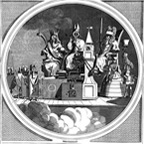Public media cannot be perceived just as a sector of social life, they constitute an important tool necessary for democracy to work properly. If the media relinquish their public role by caving to political pressure or gradual commercialisation, the position of democracy in the country becomes seriously endangered. Democracy does not only require independent media to control the actions of the authorities, but also to show the citizens how to understand the world. The citizens need this knowledge to make conscious political choices and it also helps in legitimization of the rule. Commercial media cannot take over this fundamental role of the public media. To fulfil their mission, the media need to be free both from political influences and the pressure of the market.
It is a commonly held belief in the European Union that only public media can be an effective remedy for the continual tabloidization that results in the deterioration in the quality of public debate.
Meanwhile, Poland is currently at the very end of the list of the European Union countries when it comes to the level of public media funding. An average Pole spends about PLN1 on it, which is 100 time less than a German or a British person does, where the proceeds from the licence fees amount to 80% of gross income of public broadcasters such as ZDF, ARD or BBC (Miżejewski, 2013). In Poland it is the other way round. Paradoxically, Polish public television, TVP, is funded from the sale of advertising time to a greater extent than two major commercial channels – Polsat and TVN that, incidentally, are funded not only from the commercials, but also from monthly fees paid by the satellite platform subscribers (Luft, 2014).
The status of Polskie Radio (Polish Radio) is quite different. The phenomenon of the regional stations of Polish Radio, with 80% of their funding coming from the licence fee, make them de facto the only local forum for a public debate. The difference between the gross income of public radio stations and television channels is vast. At the present moment, the operating costs of TVP SA made it impossible for the public television to even consider forgoing the commercials. The ban on interrupting scheduled TV programming with commercials resulted in almost PLN400 million in lost income a year on the part of TVP.
The improvement that can be seen in levying the licence fee, connected with more effective debt collecting actions on the part of Poczta Polska (Polish Postal Services), is only temporary. The final solution that would guarantee financial stability to the public media in Poland has not been devised yet.
To lower the operating costs of the company, the management of TVP is currently implementing a radical idea of outsourcing, which is subject to criticism from the trade unions and political opposition. The idea is to delegate certain functions and projects outside the company, and as a result, to transfer some of the employees working on particular projects. In 2013 the public broadcaster transferred 411 employees to a company selected through a tender procedure, with journalists comprising half of the group. Not only did trade unions object to outsourcing being used as the method of restructuring the company, but also programme committees of various divisions of the public television voted against it unanimously (Druki Sejmowe VI kadencja, 2009, pp. 25-27). […]
Scarica il testo completo in formato PDF
1. Introduction 2. National Broadcasting Council as a guarantor of the political independence of the public media 3. The National Broadcasting Council as a constitutional body: its contemporary political activity in practice 4. Attempts at amending the Media Act to conform to new European regulations 5. Judicature of the Constitutional Tribunal concerning the mass media and its political implications 6. Adjustment of Polish media law to European Union regulations 7. Summary






